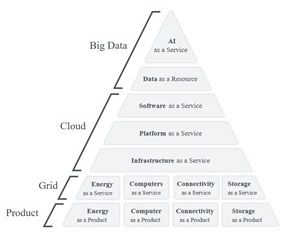 Open Source Networking and a Vision of Fully Automated Networks
Open Source Networking and a Vision of Fully Automated Networks
Transforming telecom
As an example of transformative change that is now underway, Joshipura pointed to the telecom industry. “For the past 137 years, we saw proprietary solutions,” he said. “But in the past several years, disaggregation has arrived, where hardware is separated from software. If you are a hardware engineer you build things like software developers do, with APIs and reusable modules. In the telecom industry, all of this is helping to scale networking deployments in brand new, automated ways.”
Continue reading “Penguin: Open Source Networking, Telecommunications Waking Up…”
 A plan to rescue the Web from the Internet
A plan to rescue the Web from the Internet


